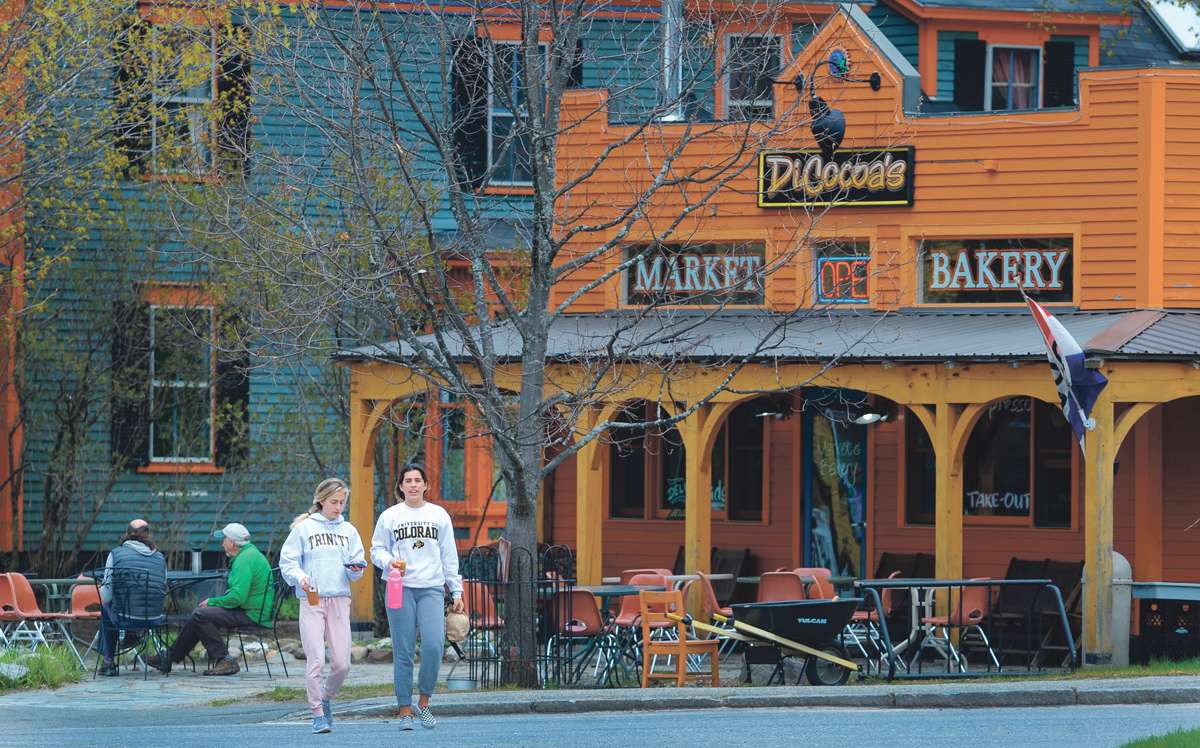
Bethel looks to diversify its economy and strengthen role as western Maine hub
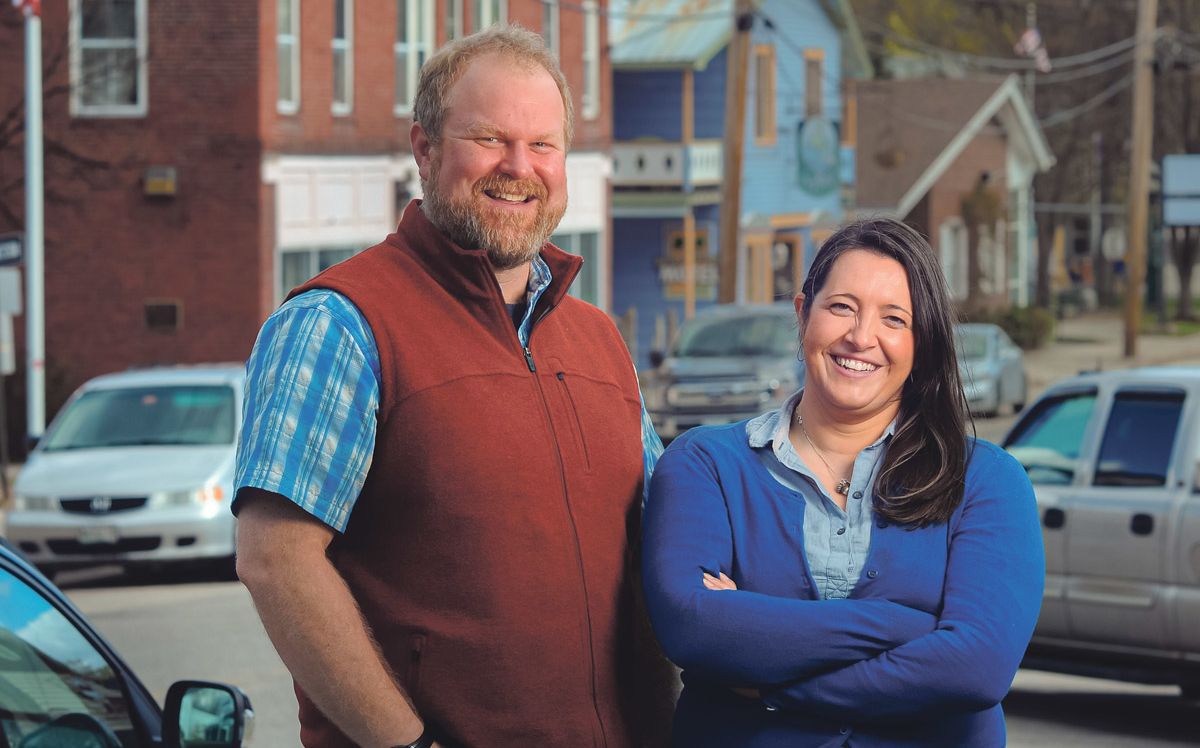 Photo / Fred Field
Gabe Perkins, left, is director of the nonprofit Mahoosuc Pathways Inc., which is creating a trail network. His wife, Jessie Perkins, is executive director of the Bethel Area Chamber of Commerce. Together, they’re part of a wider effort to promote the off-season attributes of what has traditionally been a ski-focused economy.
Photo / Fred Field
Gabe Perkins, left, is director of the nonprofit Mahoosuc Pathways Inc., which is creating a trail network. His wife, Jessie Perkins, is executive director of the Bethel Area Chamber of Commerce. Together, they’re part of a wider effort to promote the off-season attributes of what has traditionally been a ski-focused economy.
Gabe Perkins is looking forward to the imminent creation of a 978-acre community forest in Bethel that will expand an already-substantial system of outdoor recreational opportunities.
Perkins is director of Mahoosuc Pathways Inc., which oversees an extensive network of multi-use, year-round trails in Bethel. The nonprofit’s pending deal to buy the woodlands parcel from a private landowner will provide a connector between the town and the neighboring Sunday River ski resort, seven miles to the northwest, in Newry. And there’s potential to connect through a similarly evolving trail network with Mt. Abrams, about the same distance to the southeast, in Greenwood.
“We’re a ski town by and large,” say Perkins. “But trail-based recreation is the present and also the future of the year-round economy.”

Destination reputation
The town of Bethel and neighboring ski areas are in the midst of expanding and diversifying their economies. Various interests aim to leverage assets that have long made the area a desirable destination to outdoor enthusiasts. That includes proximity to New England population centers, location at the nexus of important corridors, Bethel’s reputation as an “authentic” New England town, and a longstanding vacation vibe for the region’s mountains, lakes and preserved lands.
“We can take advantage of the fact that Maine in general is a huge destination,” says Bethel Area Chamber of Commerce Executive Director Jessie Perkins, who is also Gabe Perkins’ wife. “We embrace that. We’re at the nexus of Route 2, which is the only major east-west road across northern New England and a convenient halfway point between Burlington [Vt.] and Bar Harbor. And we’re a waypoint between Montréal and the southern beaches along Route 26.”
Summer tourism has been part of Bethel’s economy for a century, she points out.
“We’re close to the White Mountains and Grafton Notch State Park,” she says. “People have always wanted to escape to the mountains. It’s not something we’ve had to invent out of thin air. We have hotels and we fill them.”
Additionally, visitors at Sunday River often venture down to Bethel.
“There are many vacation homes and other places to stay around the area, so people aren’t necessarily locked into the mountain,” she says. “We have this quaint little New England town to offer. You can walk around, go to the restaurants and stores. There’s definitely spillover into the town.”
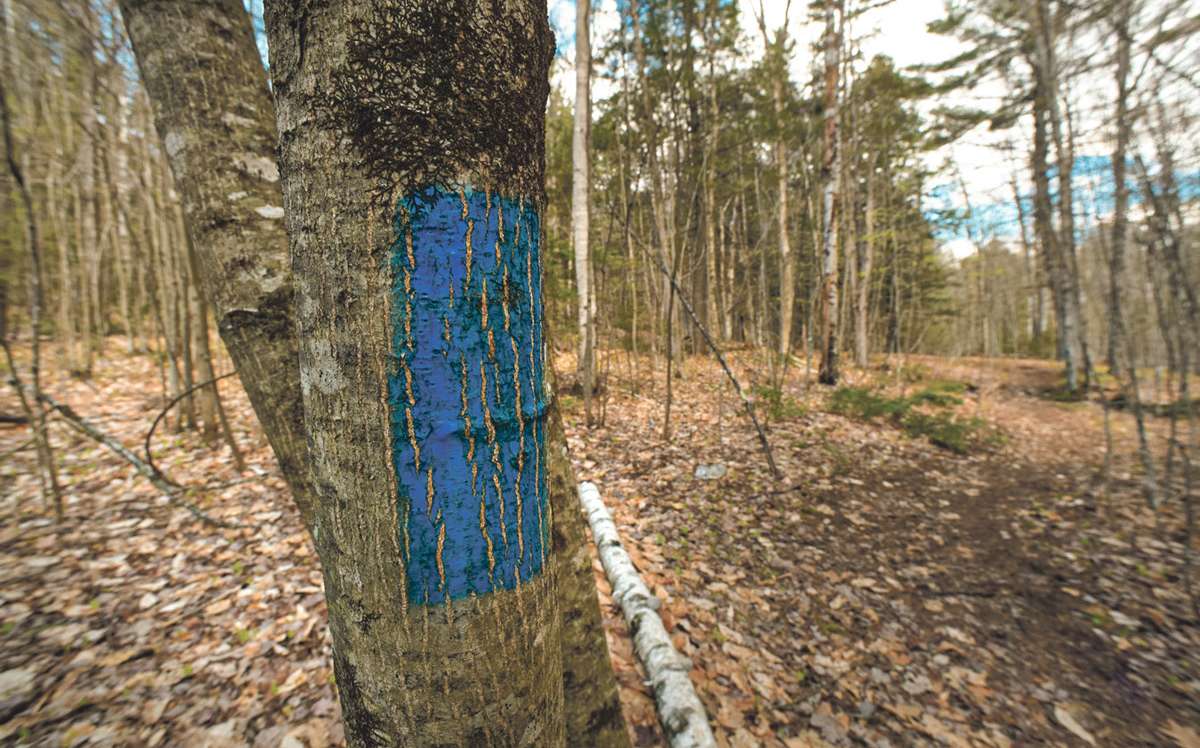
Blazing trails
Bethel has always had a steady year-round economy, thanks in large part to a strong lumber sector.
“When I was growing in up in the late ‘70s and early ‘80s, there were half a dozen sawmills here,” recalls Gabe Perkins, a fifth-generation resident. “They slowly closed. Now we have one. At the same time, Sunday River started to expand and build trails and lifts and condos. So those mill jobs got replaced quickly. We went from working at the mills to building second homes and working at Sunday River.”
“It’s a reverse synergy: In the summer more traffic goes to Bethel, then trickles up the mountain. In the winter, Sunday River is a big draw that trickles into town through lodging and dining options.” — Karolyn Castaldo, director of communications for Sunday River
In recent years, various interests have sought to expand and diversify recreation assets through multi-use trail development. That includes infrastructure development plus collaborations to entice new businesses like outdoor-gear shops, new markets like novices and youngsters in search of beginner trails, and new events like races. Bethel’s happening vibe is bringing back people who grew up here, left and returned for the lifestyle. Gabe Perkins is a returnee. So is Wade Kavanaugh, an artist who, with his wife Beth, opened The Gem movie theater and co-working space in 2016 as a year-round endeavor.
“A lot more people are retiring here or starting to work remotely here,” says Kavanaugh. “People move here for the outdoors.”
Sunday River, too, has increasingly adjusted its wintertime skiing focus to year-round multi-use activities like hiking, disc golf, conferences and weddings.
Over the past seven years, Sunday River has doubled the number of weddings and tripled the number of summertime leisure and conference groups, says director of communications Karolyn Castaldo.
“It’s a reverse synergy: In the summer more traffic goes to Bethel, then trickles up the mountain,” Castaldo says. “In the winter, Sunday River is a big draw that trickles into town through lodging and dining options.”
Trail expansions boost that relationship, Castaldo says. “Having a trail network and community forest will bring in more people looking for true outdoor experience,” she predicts.
Year-round attractions
The Bethel-Sunday River relationship reflects the broader trend of ski regions trying to create year-round economies, says Greg Sweetser, Maine Ski Association’s executive director.
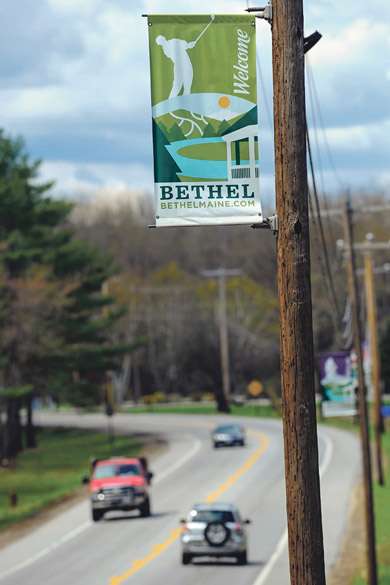
“Off-season activities are spreading,” Sweetser says. “Places like Sunday River and Sugarloaf are major year-round businesses now.”
Winter remains king. But there’s a growing warm-weather trail economy. Building trails between towns and mountains is a game-changer that offers new destination options and benefits businesses, employment and real estate sales, he says. Other areas follow a similar model. For example, nearby Mt. Abram is developing a mountain bike park, expected to open in 2020. Programming includes partnership with bike shops and races.
Together, notes Sweetser, trail construction is expected to boost the Bethel region as a destination, in turn tapping into other recreational sectors like lake-boating east of Mt. Abram.
As a result, the Bethel Inn & Resort is starting to see visitor diversification, says Brad Jerome, the inn’s general manager.
“We’re attracting more hikers and bikers,” Jerome says. “We’re branching out to more golfers.”
The relationship between Bethel and Sunday River benefits in part from the free Mountain Explorer shuttle bus operated by Western Maine Transportation Services.
“That’s grown over the years, with people heading down the mountain to eat, and then back up to ski,” Jerome adds.
Emerging challenges
As with other vacation destinations, the worker shortage and lack of affordable housing are pressing issues.
“The days are over of just putting help-wanted ads in the paper,” says Jerome. “This spring, we hosted our first job fair,” drawing 25 to 30 people from Bethel and surrounding towns, looking for four-season employment.
Transportation has always been an issue is recruiting employees, but Western Maine Transportation has a new commuter bus service that is helping, he says.
Sunday River, which employs 1,500 in the winter and up to 600 in the summer, generally has a stable workforce, says Castaldo. Many seasonal employees find summer work elsewhere and return to Sunday River for the winter.
But the resort is feeling the affordable housing pinch. To alleviate the problem last winter, it rented 116 hotel rooms for employees. It is exploring additional options for next winter.
While Sunday River has the “firepower” to fulfill such needs, as Jessie Perkins says, it’s harder for smaller business to find employees.
BJ Otten, president and CEO of Maine Energy Systems, says his heating business is winter-oriented, so he competes with the ski resorts for employees.
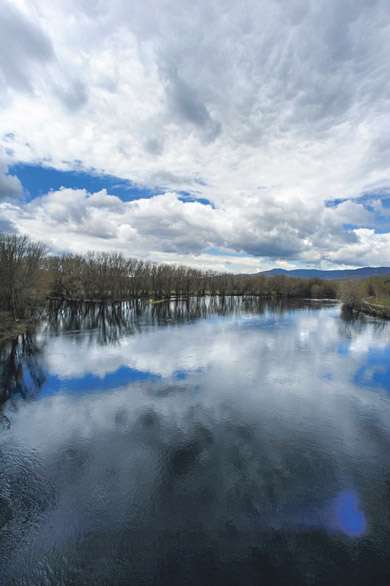
“Our strategy this year was to distribute the workload throughout a longer day, to make up for the volume of business and lack of workforce,” he says. He has also forged relationships with seasonal businesses like farms and building contractors, whose greatest need for help is in warmer months, thus cobbling together year-round work for employees.
Bethel is a microcosm of the state, says Bethel Inn Resort owner Dick Rasor.
“We embrace the fact that we have one outstanding product, and that’s recreation,” Rasor says. “There’s just about every kind of recreation you can think in this little town of less than 2,500 people. Camping, fishing, hiking have always been there. Now have two major golf courses, so we’re a golf destination, too. The trail network is unbelievable for hiking, cross-country skiing, mountain-biking, fat-tire biking, you name it. That’s expanded monumentally over the past few years. It’s fostered a whole bunch of restaurants in town and other offshoots. So it’s not just having diversity, which Bethel has always had. It’s the expansion of that recreation product.”









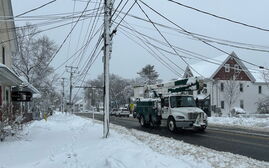




0 Comments